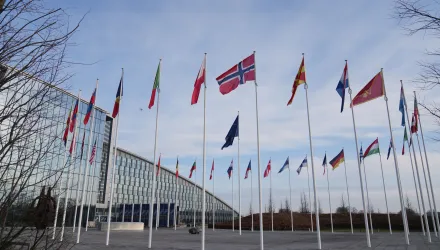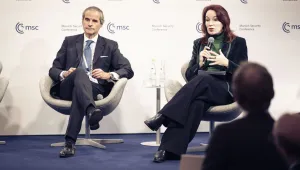Overview
Praise for Progress in International Relations Theory:
“This volume is not only an invaluable contribution to the international relations bookshelf, but also an impressive theoretical analysis by a prominent group of scholars. I have no doubt that this volume will, and should, be read by every serious scholar in international relations who is concerned with the applications of meta-theory to specific research programs.”
— Carmela Lutmar, Journal of Peace Research, Vol. 42, No. 2 (March 2005), pp. 239–240.
“PROGRESS IN INTERNATIONAL RELATIONS THEORY contains some of the most useful summaries of current research strategies that I have seen, and it impresses with respect to both the quality of scholarship and the breadth of the contemporary efforts to make sense of the international field.”
— E. Donald Briggs, Perspectives on Political Science , Vol. 33, No. 1 (Winter 2004), pp. 51–52.
All academic disciplines periodically appraise their effectiveness, evaluating the progress of previous scholarship and judging which approaches are useful and which are not. Although no field could survive if it did nothing but appraise its progress, occasional appraisals are important and if done well can help advance the field.
This book investigates how international relations theorists can better equip themselves to determine the state of scholarly work in their field. It takes as its starting point Imre Lakatos's influential theory of scientific change, and in particular his methodology of scientific research programs (MSRP). It uses MSRP to organize its analysis of major research programs over the last several decades and uses MSRP's criteria for theoretical progress to evaluate these programs. The contributors appraise the progress of institutional theory, varieties of realist and liberal theory, operational code analysis, and other research programs in international relations. Their analyses reveal the strengths and limits of Lakatosian criteria and the need for metatheoretical metrics for evaluating scientific progress.
Colin Elman is Assistant Professor, and Miriam Fendius Elman is Associate Professor in the Department of Political Science at Arizona State University. They are co-editors of Bridges and Boundaries: Historians, Political Scientists, and the Study of International Relations. Miriam Fendius Elman is also the editor of Paths to Peace: Is Democracy the Answer?
Elman, Colin and Miriam Elman. “Progress in International Relations Theory: Appraising the Field.” MIT Press, September 1, 2003







